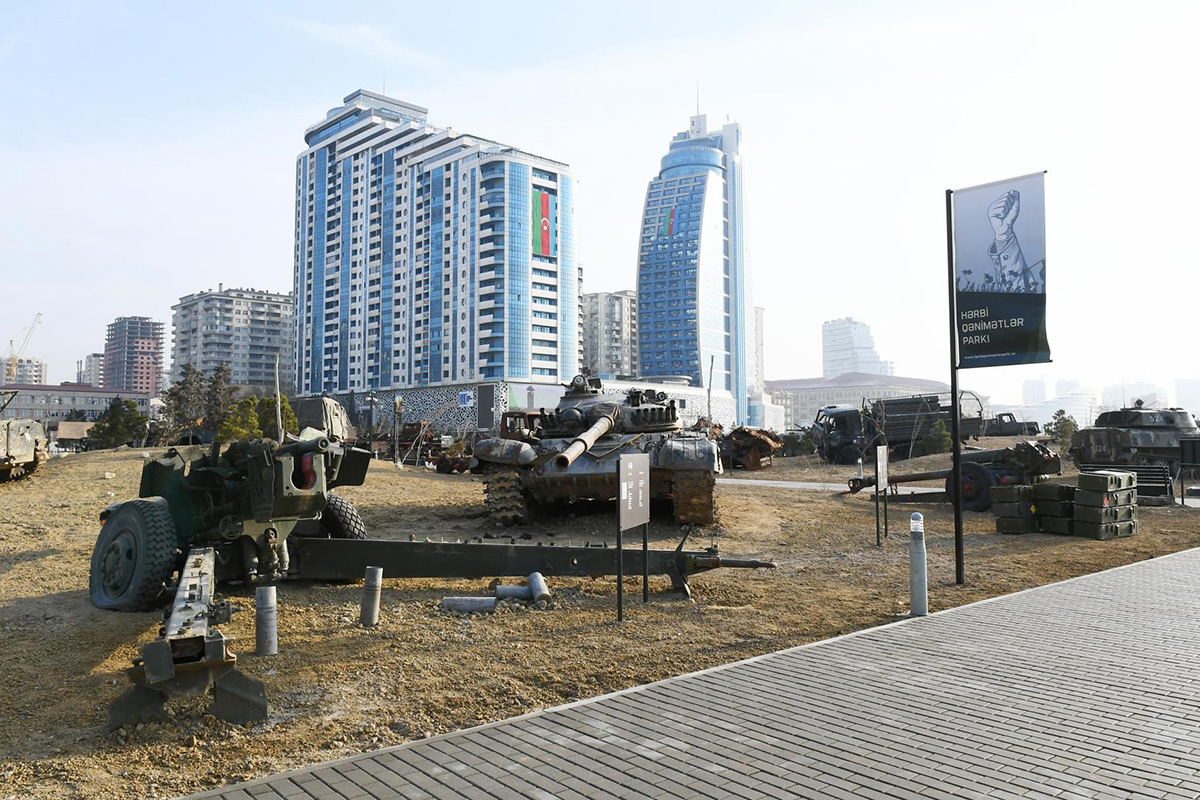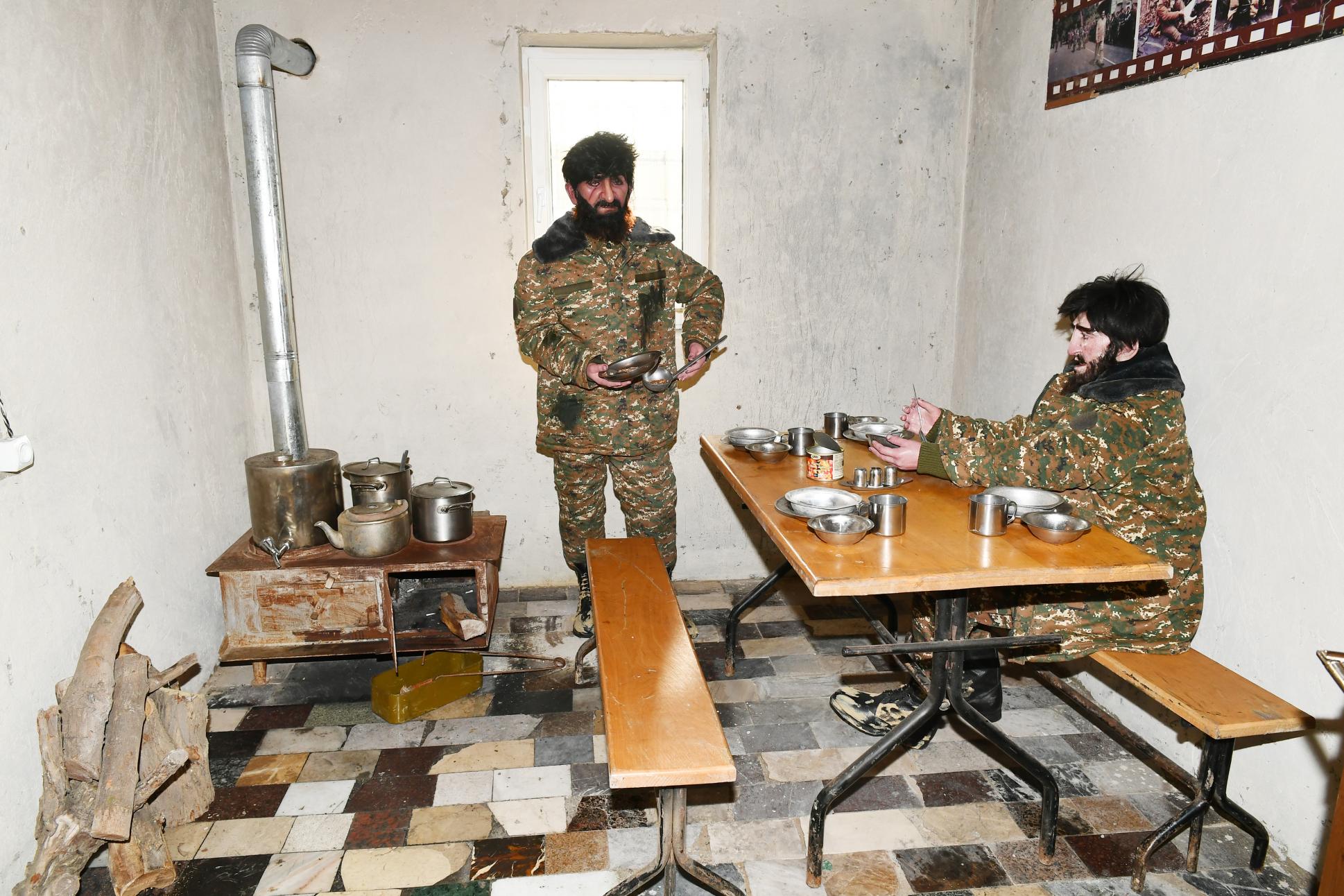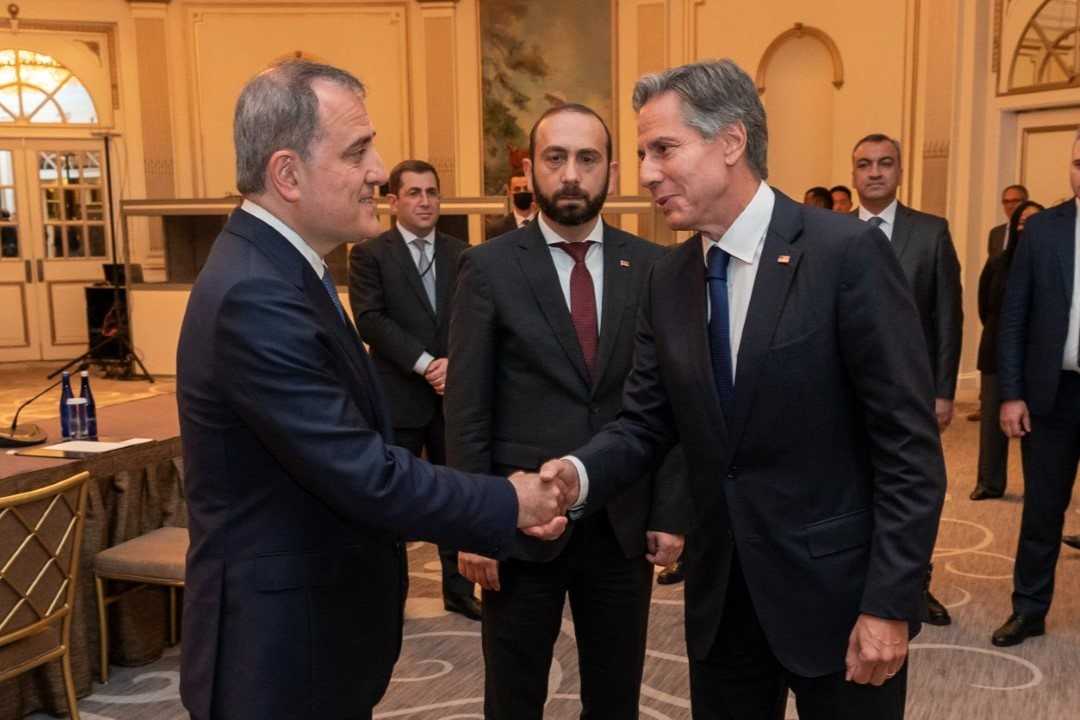
Azerbaijani politics has taken a dark turn towards irredentism with its cult of brute force and victory. There can be no lasting peace with Armenians until we dismantle the vengeful founding myths of our national identity and reject violent nationalism.
During the 2020 Nagorno-Karabakh war, many in Azerbaijan argued that the war and loss of human life were necessary to prevent further losses in the future. According to that argument, the 1988–1994 war didn’t bring peace, and skirmishes and occasional casualties became commonplace, so Azerbaijan needed a full-scale war to fully end the conflict, and so reach a lasting peace.
This argument is not only ethically unacceptable (what about those who die during the ‘necessary evil’ of a full-scale war?) but also profoundly naïve. Escalation after escalation, we’ve witnessed the lack of a meaningful peace process and a simmering continuation of the war. The fighting that broke out on Tuesday — the bloodiest since the Second Nagorno-Karabakh War — proves the naïvety of the ‘one war — then peace’ argument.
Echoes of the struggle for independence
Following the end of the second war, Azerbaijan’s rhetoric has been aggressive, with its leaders making territorial claims over the Armenian southernmost province of Syunik and refusing to engage in any meaningful way with the Armenian leadership of Nagorno-Karabakh. These claims are irredentist in nature — they advocate the annexation of foreign lands based on alleged historical or ethnic links.
Such claims were a part of the new post-war reality of Azerbaijan. Before the 2020 war, Azerbaijan’s claim that it was historically entitled to the historical region of Zangazur (which Syunik is a part of) was marginal and characteristic of far-right pan-Turkist discourses. After the war, when in July 2021 Azerbaijan established the East Zangazur Economic Region in the western part of the country and referred to the future corridor connecting the exclave of Nakhchivan with the rest of Azerbaijan as the ‘Zangazur Corridor’ it became clear that official discourse had drifted in a new expansionist direction. If there is East Zangazur, there must also be West Zangazur — which is the modern-day Syunik region of southern Armenia.
Surprisingly for many, official and pro-government media have recently spread claims over Iranian Azerbaijan as well, returning to the old pan-Turkic discourse of the 1990s independence movement.
The utopian irredentist ideas of a ‘Whole Azerbaijan’ were characteristic of the early 1990s discourse of second president Abulfaz Elchibay and his Popular Front Party — paradoxically, the main historical antagonists of the current regime. Crucially, these ideas, which were a part of the broader pro-independence movement, influenced the formation of the post-Soviet national identity in Azerbaijan.
Ilham Aliyev’s father, Heydar Aliyev, didn’t support these territorial claims. Instead, he envisioned Azerbaijanism as inclusive nation-building without irredentism and aggressive nationalism. Since the 2020 war, Heydar Aliyev’s cult of personality has become less visible — his mostly pro-negotiations approach is now at odds with the current stand-offish victory discourse.
After the end of the second war, when national identity consolidated around the idea of victory and Ilham Aliyev’s ‘iron fist’, the need for ‘new horizons’ is nothing but a revival of forgotten expansionist ideas. And it’s not just a discursive shift — the recent escalation shows that Azerbaijan wants to force Armenia to accept an authoritarian ‘peace’. It’s a peace that meets the economic demands of Azerbaijan, a peace without reconciliation.

A tale of negotiations
In early August 2022, Azerbaijan conducted what it called a ‘revenge operation’ in Nagorno-Karabakh following a July meeting between Armenian and Azerbaijani foreign ministers in Tbilisi. Then, on 31 August, Ilham Aliyev and Nikol Pashinyan met in Brussels. Each time, no announcements were made regarding the fate of Nagorno-Karabakh. The idea of these meetings was to ‘prepare the populations for a peace treaty’. Less than two weeks after the second meeting, the two countries are once again in violent conflict; a clear sign that the sides couldn’t agree on core issues.
A recent tweet of mine asking, ‘where is the civil society of Azerbaijan?’ is not only about the current situation, but also about the place of civil society in the peace process. If negotiations aim to bring nations to peace, why are neither civil society nor opposition political parties participating in the meetings? Even worse: why has neither mainstream civil society nor the political opposition come up with any alternatives to the ruling regime’s approach? After the recent clashes and losses, Azerbaijani civil society has become even more invisible.
So… where is the ‘civil society of Azerbaijan’?
— Bahruz Samadov #NoMoreWarsInCaucasus (@bahruz_samad) September 13, 2022
The negotiations are fully managed by the ruling regime, and other social actors are not interested in offering alternatives. This only strengthens the ruling regime’s power, despite Azerbaijan’s economic challenges and the sore issue of a wave of suicides by veterans of the Second Nagorno-Karabakh War. Even if there are still some voices speaking out against the war, as in NIDA’s pro-peace statement, these weak (but brave) groups lack the clout required to offer alternative proposals.
Domestic political parties have done nothing to establish dialogue with political parties and groups in Armenia. There is a lot of nationalism among the opposition and civil society, and I expect nothing constructive from nationalists even if they are often repressed by the regime, as they fundamentally share the regime’s core values.
Nationalist reality: is there an alternative?
For those progressive groups and individuals that remain committed to peace, it’s not enough to simply condemn the country’s nationalist policy or singular incidents, or even to reject Azerbaijan’s entire political landscape. A real act of courage is to question the very tenets of Azerbaijani national identity.
The dissolution of the Soviet Union showed that the ‘friendship of the peoples’ was imaginary. The horrors of the First Nagorno-Karabakh War created a national identity based on revenge and rejection of peaceful co-existence. It infected the entire political spectrum, despite the enmity between the government and the opposition. The second war has endowed the nation with an identity encapsulated in new militant symbols including the Iron Fist monument and the Military Trophy Park in Baku.

Progressive Azerbaijanis should consider opening up a space for a radically different national ethos. At first glance, we do not have much to offer. After all, the birth of the Azerbaijani nation is historically linked to inter-communal violence with Armenians at the turn of the 20th century.
However, if we look at the writings of early Azerbaijani intellectuals, we can see how at least some of them were critical of ethnic nationalism. These narratives need to re-enter Azerbaijani public consciousness.
It is true that such sources are rare and were later discredited by Soviet-era authors. However, these sources, whether early or more recent, such as Akram Aylisli’s novel addressing the taboo subject of pogroms against Armenians in Azerbaijan, are crucial for constructing a new imagery and national ethos.
Without such an aim and strategy, along with direct dialogue with relevant actors in Armenia and Nagorno-Karabakh, us progressives will never be able to provide a meaningful alternative to war.
The opinions expressed in this article are the author’s alone, and do not necessarily reflect the views of OC Media’s editorial board.









